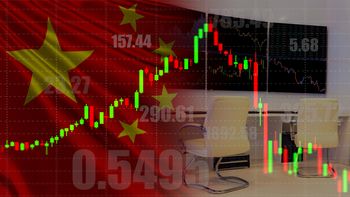The absence of Chinese President Xi Jinping from the G20 summit in India occasioned much speculation, but one simple reason might well be the current dismal state of the Chinese economy. So many things have gone wrong, and so much of it is blamed on the government’s mismanagement, that the country’s currency, the renminbi, has fallen to its lowest levels since before the pandemic. Experts no longer consider it inevitable that China will become, as long predicted, the largest economy in the world, overtaking the US.
What went wrong? The list is dismaying: a slowdown in property investment, a major driver of growth in the past, following the collapse of two major real estate firms with billions of dollars in debt; rising debt levels (China’s debt-to-GDP ratio is now over 250 per cent, among the highest in the world), limiting the scope for stimulus measures; the ongoing trade war with the US, which has hurt exports; a demographic slowdown, as the working-age population shrinks, putting a strain on economic growth; environmental challenges; and the government’s failure to drastically overhaul its growth strategy.
The result of all this is widespread gloom about China. The much-touted post-Covid recovery proved lacklustre, and the performance of state-owned enterprises, still occupying the commanding heights of the economy, has been hobbled by inefficiency. Xi’s government has contributed to the problems by its autocratic actions, which have seen major capitalists like Alibaba’s Jack Ma cut down to size, others arrested or going into exile, and increased geopolitical tensions as a result of Xi’s international belligerence. The macroeconomic forecasting consultancy TS Lombard predicts that China’s inbound foreign direct investment will slow down in 2023. The Financial Times says foreign investors are openly asking whether “China is investible” any longer.
Ordinary Chinese householders have become cautious about spending, in turn slowing growth. An extraordinary 70 per cent of Chinese household wealth is held in real estate (more than double that of the US), and much of it is imperilled. According to the World Bank, home price-to-income ratios in Beijing, Shanghai, and Shenzhen exceed “a multiple of 40”. Youth unemployment is said to be rising even as the population shrinks, though the government refuses to release data. And there is no real answer to the question: how can China manage the predicted (and necessary) transition to a consumer-based economy when consumers in general have placed so much of their wealth into properties that, thanks to the government’s refusal to bail out property companies, are ending up being worthless? What few measures the government has taken to stimulate the economy have been derided as too little, too piecemeal and devoid of any overarching strategic context. All China knows is to endlessly increase investment, which (since so much of it is unproductive and inefficient) has simply sunk it further into debt.
Xi’s heavy hand on all government policies, particularly after he won himself an indefinite extension of tenure as president, has not helped. An over-centralised government that micro-manages every major initiative cannot be expected to create or even encourage growth engines in the private sector. It is widely believed that Xi does not know what he is doing economically and has failed to empower those who do. Putting political pressure on the economy to hit government GDP targets does not work. Xi’s government is less adept than its predecessors at communicating its plans, doing little to inspire confidence in its prospects. And Xi’s failure to manage the relationship with the US has increased global “decoupling” from the Chinese economy and severely undermined the confidence of foreign portfolio investors.
Overall, the Chinese economy is still expected to continue to grow in 2023, but at a significantly slower pace than in previous years. The key to sustained growth will be for the government to implement reforms that address the underlying challenges facing the economy, but there are few signs of this happening. With experts declaring that China isn’t going to be a powerful driver of global economic growth in the near future, Xi has plenty to do at home.
editor@theweek.in


